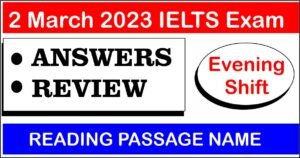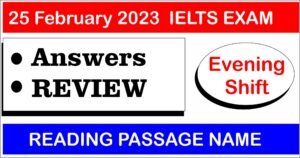If you are aiming to score a Band 8 in IELTS Writing, there are 5 Easy Steps to Score Band 8 in IELTS Writing. First, make sure your answer is directly related to the question and use ideas and examples that are familiar to you. Second, answer all parts of the question and write more than 250 words. Third, organize your essay logically with clear progression and linking phrases. Fourth, use paragraphs to organize your essay and remember to use the PEEL acronym when writing. Finally, use less common vocabulary and spell it correctly. By following these five steps, you can improve your IELTS Writing score and increase your chances of success.
5 Easy Steps to Score Band 8 in IELTS Writing
Step 1: Ensure your answer is relevant to the question
Make sure you are answering the exact question asked and avoid giving irrelevant information. Stick to examples and ideas that are relevant to the topic, and don’t generalize too much. Ensure your ideas are presented clearly to the examiner by being specific and avoiding memorized essays.
Do:
- Ensure your ideas are related to the question.
- Use familiar examples and ideas related to the topic.
- Support your answer with multiple ideas.
Don’t:
- Include irrelevant information.
- Overgeneralize.
- Use memorized essays.
- Provide recent research or statistics that are not relevant.
Related :- IELTS writing task 2 – Template
Step 2: Answer all parts of the question
Read the question carefully and answer all parts of it, providing your opinion and supporting it throughout the essay. If asked to present both views, ensure that each view is presented equally, and use at least two advantages if asked to provide them. Be mindful of plurals and comment on more than one element if necessary. Finally, write an essay that is at least 250 words.
Do:
- Answer all parts of the question.
- Use the first person to indicate your opinion.
- Ensure your essay is at least 250 words.
- Use equal paragraph length for presenting both views if asked to present them.
Don’t:
- Ignore parts of the question.
- Provide a short essay.
- Tell the examiner what you will say and have said.
Step 3: Organize your essay logically, with clear progression using linking phrases
Arrange your ideas logically by starting with an introduction and ending with a conclusion. If presenting both views and your opinion, state your opinion first, present both views, and then conclude the essay. Use a variety of linking words and phrases, adverbial phrases, referencing, and substitution to avoid repetition. Use punctuation correctly to ensure coherence, correct sequence of ideas, and logical flow.
Do:
- Use a range of linking words and phrases.
- Use referencing and substitution to avoid repetition.
- Use punctuation appropriately.
- Sequence your ideas logically.
- Use a separate paragraph for the introduction and conclusion.
Don’t:
- Overuse basic linking words.
- Use numbers, symbols, or abbreviations.
- Use headings, subheadings, or underlining.
- Start every sentence with a linking device.
Step 4: Organize your essays into paragraphs
Use paragraphs to separate your essay into clear parts with a minimum of two sentences per paragraph. Use the PEEL acronym, which stands for Point, Example, Explain, and Link, to structure your paragraphs.
Do:
- Use paragraphs.
- Use linkers within and between your paragraphs.
- Leave a space between each paragraph.
- Use an introduction and a conclusion.
Don’t:
- Use single-sentence paragraphs.
- Use very long paragraphs that cover a whole page.
Step 5: Use less common vocabulary and spell it correctly
Choose precise word choices and language that is commonly used in everyday speech. Use words related to the topic, collocations, and phrasal verbs. Avoid spelling mistakes and typos, and use either American or British spelling consistently. Don’t use imprecise words like “stuff” or slang. Avoid old-fashioned language, synonyms, idioms, clichés, and contractions.
Do:
- Use precise word choices.
- Use language that is commonly used in everyday speech.
- Use words and phrases related to the topic.
- Use collocations and phrasal verbs.
Don’t:
- Make spelling mistakes or typos.
- Mix American and British spelling.
- Use words that you don’t understand or can’t spell.
- Use imprecise words or slang.
- Use old-fashioned language, synonyms, idioms, clichés, or contractions.
Content Source :- IDP
In conclusion, scoring a Band 8 in IELTS Writing may seem daunting, but by following these “5 Easy Steps to Score Band 8 in IELTS Writing”, you can significantly increase your chances of achieving this goal. It’s essential to answer the question directly, cover all parts of the question, organize your essay logically, use paragraphs effectively, and use less common vocabulary correctly. Keep in mind that consistent practice, feedback, and improvement are crucial in mastering your writing skills. By implementing these steps and dedicating yourself to regular practice, you’ll be well on your way to achieving your desired score in the IELTS Writing test.
Latest Posts
- 24 Feb 2024 IELTS Exam Review and Answers
- Employment should give their staff at least a 4-week holiday a year to make employees better at their jobs. To what extent do you agree or disagree?
- EMPLOYERS SHOULD GIVE LONGER HOLIDAYS TO EMPLOYEES – 24 Feb 2024 IELTS Writing Task 2
- 17 Feb 2024 IELTS Exam Review and Answers
- If some people get a chance between life without work in spending most of the time working then they would choose not to work. Do you agree or disagree?” – 17 Feb 2024
- IELTS Writing Task 2 Template – Band 9 – Discuss Both Views and Give your Opinion – Best Sample
- Describe a uniform you wear at your school or company. – Best Cue Card – 2024
- 8 Feb 2024 IELTS Exam Review and Best Answers
- Parents should encourage children to spend less time studying and more time doing physical activities. To what extent do you agree or disagree? – 8 Feb 2024
- Best 10 IELTS Cue Cards Topics to Nail in February 2024!
- Describe a person who is good at making people feel welcome in his or her home : 2024 Best Prediction
- Describe an interesting conversation you had with a very old person : 2024 Best Prediction
- Describe a successful person with whom you once studied or worked : 2024 Best Prediction
- Describe an unusual holiday you had : 2024 Best Prediction
- Describe a useful object in your home that you cannot live without : 2024 Best Prediction
- Describe a skill that you learned in your childhood : 2024 Best Prediction
- Describe a sports person that you admire : 2024 Best Prediction
- Describe a Situation when you helped someone – 2024 Best Prediction
- Describe something in your country that you are interested in – 2024 Best Prediction
- 3 Feb 2024 IELTS Exam Review – Best Answers and Passage Name
- The use of social Media is replacing face to face interaction among many people in society. Do you think the advantages outweigh the disadvantages? – 3 February 2024
- Some people say that a child can develop on its own, others say that teachers and parents have crucial role. Discuss both views and give your opinion – 3 Feb 2024
- Many Historical sites and museums are mainly visited by tourists, not local people. Why is this the case? What can be done to attract local people to visit this historical sites and museums
- IELTS Exam Review and Answers held on 11 May 2023: A Comprehensive Guide
- IELTS Exam Review and Answers Held on 6 May 2023
- 29 April 2023 IELTS Exam Review and Answers
- 20 April 2023 IELTS Exam Review and Answers
- Do the advantages of this outweigh the disadvantages?
- 1 April 2023 IELTS Exam Best Review and Answers
- Best IELTS Template for Discuss Both Views and Give your Own Opinion.
- 1 April IELTS Exam Prediction – Best
- Best IELTS Writing Template
- 5 Best Templates to write Thesis Statement
- IELTS essay Ideas – Senior Managers Salary vs Other workers salary
- 25 March 2023 IELTS Exam Review and Answers
- 5 Easy Steps to Score Band 8 in IELTS Writing
- IELTS Writing Task 2 | Problem Solution Essay Template | Just Copy Paste
- Recently asked IELTS Speaking cue Cards (March 2023)
- 25 March 2023 IELTS exam Prediction
- IELTS writing Template | To what extent do you agree or disagree?| Just Copy – Paste
- 18 March 2023 IELTS Exam Review and Answers
- 11 March 2023 IELTS Answers and Review – Best
- 2 March 2023 IELTS Exam Answers – Best Review
- 25 Feb 2023 IELTS Exam Review and Answers – Evening Slot
- 16 Feb 2023, IELTS Exam Answers and Review
- Describe a joke that made you laugh.
- 11 Feb 2023, IELTS exam Review and Answers, Evening slot
- 7 Canada Scholarships available for International students
- Ways to EMPHASIZE a point : IELTS writing
- Contrasting Points Language in IELTS writing
- 4 February 2023, IELTS exam Review, Answers, Evening Shift
- IELTS previous year exams
- 4 February 2023 – IELTS exam best review and correct Answers – Morning Shift
- Agree / Disagree (one-sided) IELTS writing task 2 Essay template – Just copy-paste – Band7+
- 7 Tips to Study in Germany
- IELTS WT2 Template : To what extent do you agree or disagree”
- 28 January 2023 – IELTS exam review – Answers – Evening Shift
- Some people think that the development of technology has made our life more complex, and the solution is to live a simpler life without technology. To what extent do you agree or disagree?
- 28 January 2023 – IELTS exam review – Answers – Morning shift
- Top 5 recently asked IELTS speaking cue-cards – 2023
- Describe an area of your city which you don’t like – Top 10 recently asked IELTS speaking cue cards
- School should focus on academic success and passing examinations. Skill such as cookery, dressmaking and woodwork should not be taught at school as it is better to learn these from family and friends. To what extent do you agree or disagree?
- 21 January 2023 – IELTS exam Review and Answers – Evening Shift
- 21 January 2023 – IELTS exam review – Morning slot – Best Essay sample
- 19 January 2023 – IELTS Exam Best Review and Answers
- Talk about a rule that you like to follow :- Top 10 recently asked IELTS speaking cue cards
- Describe a mobile phone application you use to learn a new skill. – Top 10 recently asked IELTS Speaking Cue Cards 2023
- Describe a time when you helped a child – Top 10 recently asked IELTS Speaking Cue Cards – 2023
- Describe a time when you Studied at friend’s home – Top 10 IELTS speaking cue cards 2023
- Describe a park which has changed a lot – Top 10 IELTS speaking cue cards -2023
- Describe a time when you provided Support to an animal – Top 10 IELTS Speaking Cue cards – 2023
- Describe a person who Inspired you – Top 10 – IELTS Speaking Cue cards – 2023
- Describe a time when you experienced Bad Weather – Top 10 IELTS Speaking Cue Cards – 2023
- Talk about a time when you received Flower as Gift – Top 10 – Recently asked IELTS Speaking Cue Cards 2023
- 14 January 2023 – IELTS exam Review & Answers – INDIA
- 7 January 2023, IELTS Listening & Reading Answers, Evening shift
- 7 January 2023, IELTS Exam, Writing Task 2, Evening Shift, INDIA
- 7 January 2023, IELTS exam, Writing task 1, Morning shift, INDIA
- Gift – Describe a time when you received money as a gift – Top 10 IELTS Speaking cue card
- 24 December 2022 IELTS exam review and Answers – Evening Shift
- 24 December 2022 – IELTS Review and Answers – Morning Shift
- Describe a person you know who is from a different culture or tradition
- Describe a time when you had a disagreement with someone – Top IELTS Speaking Cue Card
- 17 December 2022 | IELTS EXAM REVIEW AND ANSWERS | EVENING SHIFT
- 17 December 2022 | IELTS exam review | Morning shift. – Correct Answers
- Recently Asked IELTS Speaking Cue Cards – December 2022
- Describe an object that you find particularly beautiful
- Describe a photo that you took and proud of.
- Describe a Movie You Would like to Watch Again
- 5 tips to write perfect ‘Statement of Purpose’ (SOP)
- 5 tips to write perfect SOP ‘Statement of Purpose’
- 8 Common Mistakes in IELTS Writing – Careful

























































































